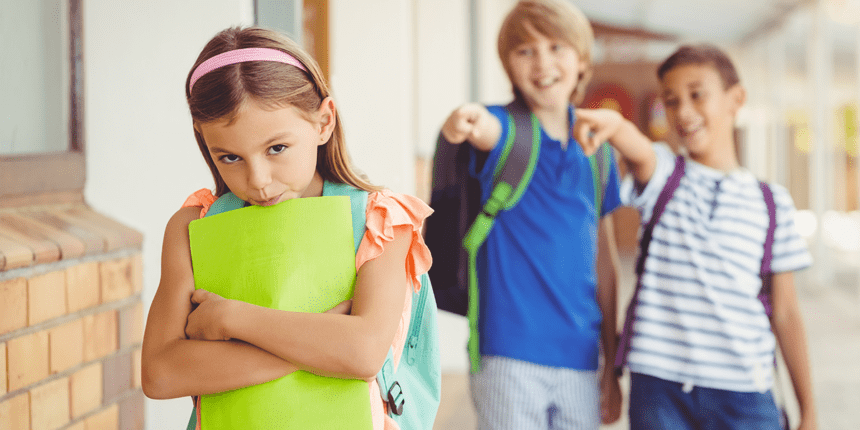Is your child displaying excessive anxiety towards social situations or frequently avoiding school attendance in recent weeks? There might be a possibility that your child is being bullied. Peer violence against a child is commonly referred to as child bullying.
This behaviour can manifest itself in a variety of ways, including physical, verbal, and social activities intended to injure, humiliate, or intimidate the child. It can occur in schools, playgrounds, online forums, and large crowds.
Care providers must comprehend the signs, symptoms, types, and successful methods of dealing with Bullying.
Is your child being bullied? 9 Signs That Should Not Be Ignored
To take on-the-spot action, it is vital to understand the caution symptoms of abuse on your infant. Parents must know the caution signs that their infant is being bullied. If your toddler exhibits any of the subsequent behaviours:
- Your child avoids gatherings and prefers to stay alone
- Anger, fussiness, sadness, or stress, typically for no particular cause
- Making an excuse to take off from school
- They have unexplained scars, scratches, or bruises on their bodies
- Your child’s belongings are getting lost or returned damaged
- There is a steady decline in academic achievement
- Engaging in bad self-talk, self-doubt, or self-grievance
- Unusual physical symptoms such as headaches, tummy aches, diarrhea, or other stress-related ailments
- Having difficulty sleeping or eating properly in the previous few weeks
Also, Check: understanding autism spectrum disorder
How can your child be bullied?
Bullying takes many other forms than verbal and physical abuse. It also includes the erosion of the mental peace of the child. Your child might face bullying through these methods:
- Verbal: Your child may receive hurtful names, teasing, and derogatory comments.
- Physical aggression, such as hitting, pushing, and stealing, can instil fear and helplessness.
- Social Bullying, like exclusion, spreading rumours, and relationship manipulation
- Cyberbullying through social media, texts, or online forums, well beyond school hours.
- Indirect Bullying by encouraging others to harm or unfairly exclude the child by using social circumstances and peer pressure.
- Threatening by using gestures, facial expressions, and postures to evoke fear
- Discrimination targeted because of personal characteristics such as race, gender, disability, and religion
What can you do for your child to stand against Bullying?
The first and foremost thing you need to do is to make your child understand what Bullying is. Let your child know you are emotionally there for them by validating their feelings. Listen without judgment. Create an environment where your child feels comfortable talking about their experiences. Reassure them that this is not their fault.
Bullies often look for a reaction, and remaining silent can be powerful.
- Teach your child to stay calm and composed in the face of abuse.
- Help your child develop problem-solving strategies such as walking away, seeking adult help, or using humour to distract.
- Build confidence by highlighting their strengths and unique qualities. A confident child is a challenging target.
- Teach them online safety and how to block and report cyberbullying on social media platforms.
- Please encourage them to help friends who are being bullied and to report incidents they witness.
- Make sure your child knows it is okay to seek help and that reporting abuse is not a sign of weakness.
While Bullying occurs at school, work with educators and staff to address the issue. Schools frequently have against bullying arrangements and mediations. Urge your kid to keep a harasser diary with dates, areas, and depictions. These reports can be valuable, assuming further activity is required.
Also, Check: anxiety disorders in children
Does my child need professional help with Bullying?
Bullying of children can have devastating effects. Casualties of tormenting may encounter profound wretchedness, stress, gloom, decreased instructive execution, or even self-destructive considerations. Moreover, Bullying can leave enduring scars on a kid’s character.
If Bullying is harming your youngster’s psychological well-being, look for guaranteed help from a kids’ therapist issues. The sooner you get mental assistance, the better it is for your kid’s prosperity.
Directing your baby through this stage gives them the devices and confidence they need to face Bullying while providing a protected climate at the same time.

